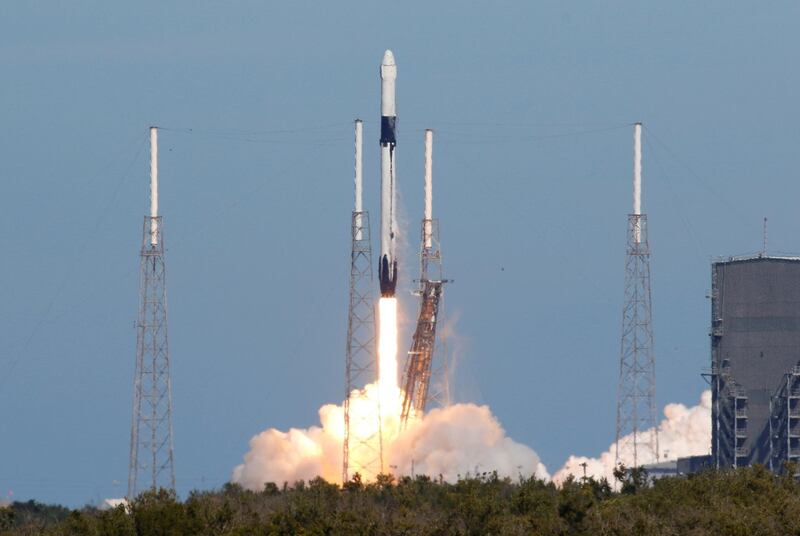SpaceX on Wednesday blasted off its unmanned Dragon cargo ship, loaded with supplies, science experiments and food for the astronauts living at the International Space Station but failed to successfully land its booster afterwards.
“We have had a great lift-off,” said SpaceX commentator John Insprucker, as the Falcon 9 rocket soared into the sunny, blue sky over Cape Canaveral, Florida at 1.16 pm local time, carrying 2,500kg of gear.
The mission, SpaceX’s 16th for NASA as part of a long-term contract to ferry supplies to space, successfully made it to orbit, which was the primary goal of the launch.
_______________
Read more:
Is Musk's The Boring Company outrageous or just what LA and Dubai need? Maybe both
_______________
But the tall portion of the rocket missed its goal of securing an upright landing on solid ground at Cape Canaveral’s Landing Zone 1.
After separating from the second stage, and firing its engines to return to Earth, a video camera on board showed the first stage spinning.
Then the live feed was cut off.
“Grid fin hydraulic pump stalled, so Falcon landed just out to sea,” CEO Elon Musk said on Twitter.
“Appears to be undamaged and is transmitting data. Recovery ship dispatched.”
Grid fin hydraulic pump stalled, so Falcon landed just out to sea. Appears to be undamaged & is transmitting data. Recovery ship dispatched.
— Elon Musk (@elonmusk) December 5, 2018
SpaceX has landed more than 30 of its boosters successfully back on Earth, either on land or on a floating platform.
The effort is aimed at reducing the cost of launches by re-using expensive components, instead of jettisoning them in the ocean after each mission.
The rocket was initially meant to take off Tuesday, but was delayed for a day after engineers discovered mouldy mouse food in one of the science investigations designed to study the effect of microgravity on the immune system.
The bad food was replaced ahead of Wednesday’s launch.
Other experiments among the more than 250 on board include a new kind of mustard green lettuce that astronauts will grow in space.
The Dragon space capsule that flew on Wednesday was used once before, on a supply mission in February 2017.
It should arrive at the space station on Saturday.





